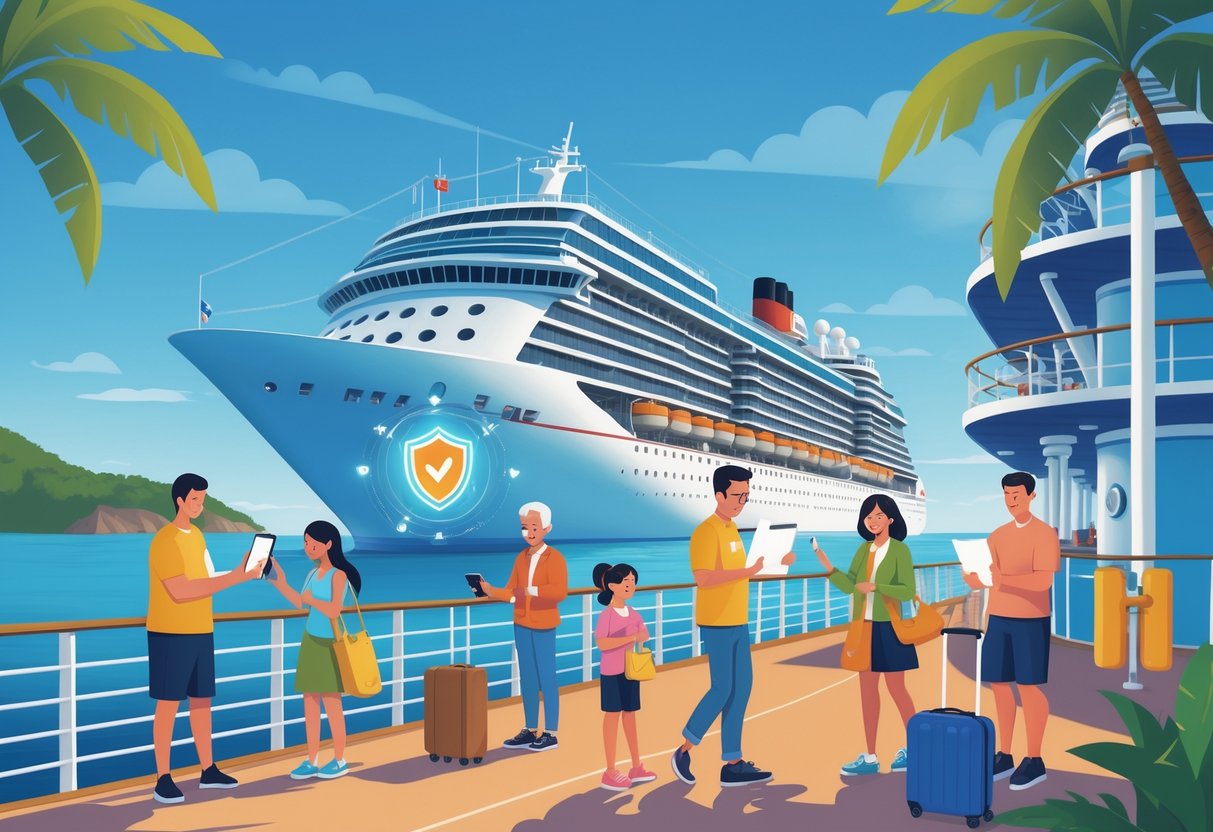
Dining and Food Options at Sea
Modern cruise ships offer a variety of complimentary and specialty dining venues, with choices that suit every taste and budget. The range of shipboard restaurants, meal plans, and allergy-friendly kitchens ensures passengers can easily plan and enjoy their meals throughout the voyage.
Dining Packages and Reservations
Most cruise lines provide both included main dining rooms and specialty restaurants that charge extra. Guests can purchase dining packages before sailing, which often bundle multiple specialty meals for a discounted price.
Specialty dining reservations are highly recommended, especially on popular sailings and for venues in high demand. Dining plans may be available for different lengths of the cruise and can be purchased either pre-cruise or once on board.
The main dining room and buffet do not usually require reservations, but specialty options—such as steakhouses, Italian eateries, and sushi bars—fill up quickly, especially during peak dining hours. Early booking is advised for the best times and tables.
For more guidance, see this guide to cruise ship food and dining. Passengers should also consider flexible dining options, such as open seating or set times.
Some ships now offer 24-hour food venues or grab-and-go cafes, making it easy to fit meals around excursions and shipboard activities.
Special Dietary Needs and Allergies
Cruise lines have become significantly more attentive to passengers with food allergies, intolerances, and special dietary preferences. Passengers can typically notify the cruise line in advance regarding dietary needs, including gluten-free, vegan, kosher, or diabetic-friendly meals.
Dining staff are trained to assist and can provide ingredient lists upon request. Those with allergies should speak directly with the maitre d’ on embarkation day and also communicate with servers at each meal.
Dedicated menus and clearly labeled buffet items make it easier to make safe choices. Many ships will prepare custom meals when notified ahead of time.
For guests with severe allergies, carrying an emergency action plan and necessary medications is strongly recommended. Tips for navigating special dietary requests are discussed here: first-time cruiser dining tips.
Making the Most of Shore Excursions
Shore excursions can turn a cruise stop into a memorable experience, offering the chance to see local highlights or enjoy adventures. Whether travelers book through the cruise line or explore independently, planning and preparation play a big role in making shore time enjoyable and stress-free.
Booking Shore Excursions Through the Cruise Line
Booking excursions through the cruise line can offer several practical benefits. The ship often coordinates with trusted tour operators and adjusts to delays, so guests are less likely to miss the vessel’s departure if an official excursion runs late.
This peace of mind can be especially valuable in ports with complex transportation or language barriers. Cruise lines typically offer a range of activities, such as snorkeling, historical tours, or culinary experiences.
These choices make it easier to find something that suits most interests and fitness levels. Booking through the cruise also means excursions are vetted for safety, consistency, and quality.
Before booking, review activity details, physical requirements, and cancellation policies. Cruise lines may offer discounts for early reservations, so planning ahead can save money and spots often fill up quickly.
For a full overview of how these excursions work, visit this guide to shore excursions.
Tips for Independent Exploration
Many travelers prefer to explore on their own for added flexibility and cost savings. Independent exploration allows guests to set their own pace, visit less crowded sites, and customize their itinerary.
Researching the port in advance is essential. Look up local transportation options, maps, and points of interest before leaving the ship.
Keep important details, like the ship’s departure time and local emergency contacts, handy. Bringing a watch set to the ship’s time (not local) is a simple tip that helps prevent confusion, as mobile phones could update to local time and cause missed connections.
For more safety ideas, see these advice threads for first-time cruisers. Pack essentials: copies of travel documents, water, sunscreen, and local currency.
To reduce risk, it’s wise to return to the port at least one hour before the ship’s scheduled departure. Double-check port logistics, as larger ships might tender passengers to shore, which can take extra time.
Independent exploration can offer great value when combined with preparation and caution.
Staying Secure and Protecting Personal Data

Travelers booking their first cruise often overlook digital security and personal data protection. Simple practices can reduce the risks and ensure a safer, worry-free journey.
Security Measures Onboard
Cruise ships usually require passengers to set up an account for onboard purchases and cabin access. It is important for travelers to use strong, unique passwords when authenticating users for online accounts or Wi-Fi login portals.
Avoid sharing login details with others and always log out from shared devices. When accessing the internet onboard, many experts recommend using a VPN, but cruise lines may have restrictions so it’s important to check the Wi-Fi policy beforehand.
Secure all personal devices using up-to-date antivirus software and only connect to the ship’s official Wi-Fi network, not unfamiliar hotspots. Limit the use of public USB charging stations, as these can sometimes introduce security risks, according to cruise data safety tips.
Keep valuables and sensitive documents locked in your cabin safe when not needed. Always report suspicious activity or unauthorized charges to guest services immediately to minimize the impact.



